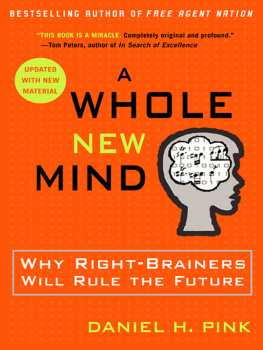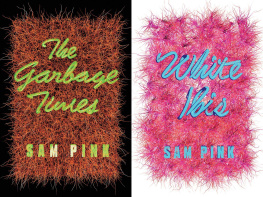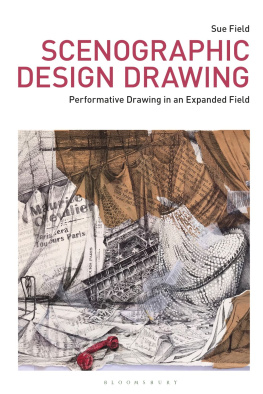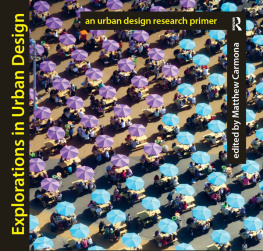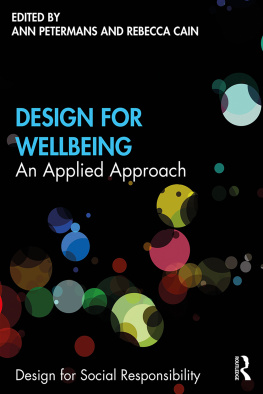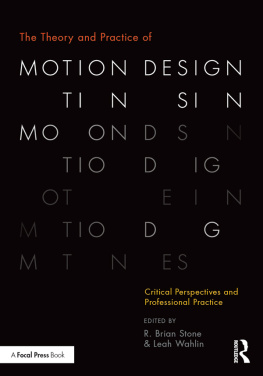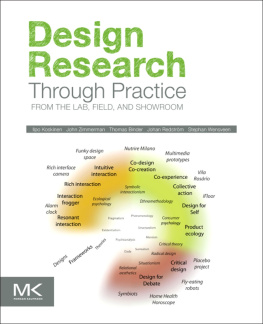Making Homes
Home
Series Editors: Victor Buchli and Rosie Cox
ISSN: 2398-3191
This exciting new series responds to the growing interest in the home as an area of research and teaching. Highly interdisciplinary, titles feature contributions from across the social sciences, including anthropology, material culture studies, architecture and design, sociology, gender studies, migration studies and environmental studies. Relevant to undergraduate and postgraduate students as well as researchers, the series will consolidate the home as a field of study.
Food, Masculinities, and Home: Interdisciplinary Perspectives edited by Michelle Szabo and Shelley Koch
Sexuality and Gender at Home: Experience, Politics, Transgression edited by Brent Pilkey, Rachael M. Scicluna, Ben Campkin and Barbara Penner
FURTHER TITLES FORTHCOMING
Making Homes
Ethnography and Design
SARAH PINK, KERSTIN LEDER MACKLEY, ROXANA MOROANU, VAL MITCHELL AND TRACY BHAMRA
Bloomsbury Academic
An imprint of Bloomsbury Publishing Plc

Contents
Sarah Pink is Distinguished Professor and Director of the Digital Ethnography Research Centre at RMIT University, Australia. She is Visiting Professor across the Schools of Design and Civil and Building Engineering at Loughborough University, UK, and International Visiting Professor at Halmstad University, Sweden. Her research brings together theoretical and academic scholarship with applied practice through design ethnography approaches to understanding and creating interventions in everyday life. Her most recent books include: Anthropologies and Futures (2017), Theoretical Scholarship and Applied Practice (2017), Digital Ethnography: Principles and Practice (2016), Digital Materialities (2016) , Screen Ecologies (2016), Doing Sensory Ethnography , 2nd edition (2015), and Media, Anthropology and Public Scholarship (2015). Her research has been funded by National Research Councils in the United Kingdom, Spain, Australia and Sweden and through the EU Horizon 2020 programme, as well as through partnerships with companies including Unilever (United Kingdom), Intel (the United States), Volvo Cars (Sweden), Suncorp (Australia), and other organizations.
Kerstin Leder Mackley is a Senior Research Associate at UCLs London Knowledge Lab, working on the IN-TOUCH: Digital Touch Communication project. She has previously held research posts at the Loughborough Design School, the Department of Social Sciences, Loughborough University, and the School of Engineering and Design, Brunel University. Kerstins background is in audience and reception research from a broad media and cultural studies perspective. She has applied a keen interest in people, emerging technologies and everyday life to a range of sustainability projects, including energy demand reduction (LEEDR Low Effort Energy Demand Reduction, 201014) and hot water consumption (Hothouse, 201417). Her ethnographic work has informed interdisciplinary research challenges and built on the intersections between anthropology, engineering, user-centred design and applied futures research. Kerstin has published in a variety of peer-reviewed journals, including Media, Culture & Society , TOCHI and the Journal of Design Research .
Roxana Moro anu is a research associate at the University of Cambridge, UK. She completed a PhD in social anthropology at Loughborough University in 2014. Roxana works at the intersection between the fields of social sciences of sustainability, digital anthropology, design anthropology and the new sociology of art. Her current research looks at creativity and fixation in designers work. She has published in a variety of peer-reviewed journals, including The Cambridge Journal of Anthropology , International Journal of Cultural Studies , and TOCHI . Her most recent book is An Ethnography of Household Energy Demand in the UK: Everyday Temporalities of Digital Media Usage (2016). Together with Felix Ringel, she edited the special issue Time-tricking: Reconsidering Temporal Agency in Troubled Times for The Cambridge Journal of Anthropology (March 2016).
Val Mitchell is a senior lecturer in user-experience design at Loughborough Design School, Loughborough University, UK. Her PhD entitled Methods for Exploring User Needs for Future Mobile Products and Services was conducted in collaboration with a major UK manufacturer of mobile communication technologies. Her research focusses on developing methods and tools for user-centred design and user-experience design, particularly in relation to interdisciplinary research and practice. Her research has been funded by the UK government and research councils as well as commercial organizations. She has published in a variety of peer-reviewed HCI and design journals, including ACM Transactions on Computer-Human Interaction ( TOCHI ), Interacting with Computers , Personal and Ubiquitous Computing , Co-design and The Design Journal .
Tracy Bhamra is Professor of Sustainable Design and Pro Vice-Chancellor (Enterprise) at Loughborough University, UK. She has a BSc and MSc in manufacturing systems engineering and completed a PhD in design for disassembly and recycling at Manchester Metropolitan University in 1995. In 2003 she established the Sustainable Design Research Group at Loughborough University that undertakes world-leading research in areas such as design for sustainable behaviour, methods and tools for sustainable design, sustainable product service system design and sustainable design education. Her research has been funded by the UK government and research councils and by a number of large industrial organizations. Her book Design for Sustainability: A Practical Approach was published in 2007. Tracy is a chartered engineer (CEng) and a Fellow of the Institution of Engineering & Technology (FIET), the Design Research Society (DRS) and the Royal Society for the Encouragement of Arts, Manufactures & Commerce (FRSA).
T he research discussed in this book was based on in-depth ethnographic and design projects. We would like to thank all of the people who have participated in these studies and made our work possible. Original research discussed in this book was based on the interdisciplinary Low Effort Energy Demand Reduction (LEEDR) project. LEEDR was based at Loughborough University and was jointly funded by the UK Research Councils Digital Economy and Energy programmes (grant number EP/I000267/1). Where relevant we have drawn on our own unpublished research within this project to present research findings. We have also discussed already published findings from this project and, where relevant, guided readers to the full publications and acknowledged other researchers involved in this project, including Carolina Escobar-Tello, Garrath Wilson and Richard Buswell (PI), whom we would like to particularly acknowledge. In other cases we have discussed existing work on which we have collaborated with others, which has already been published and is therefore available. We have acknowledged the work of colleagues through our references to these joint publications in this book. Here we note these projects to acknowledge the range of collaborative research activity that forms the background to the ideas discussed in this book. These mainly refer to the following projects: the Complex, Clever, Cool (201415) project, on which the Laundry Lives documentary was based, was developed by Sarah Pink with colleagues in the Digital Ethnography Research Centre at RMIT University, in partnership with Unilever. Laundry Lives (2015) was co-directed by Sarah Pink and Nadia Astari; the Cleaning Homes & Lifestyles and UK Tablets study were developed during Sarah Pinks earlier collaborations with Unilever; Sarah Pink was a CI on the Management of OSH in Networked Systems of Production or Service Delivery: Comparisons between Healthcare, Construction and Logistics project, which was funded by IOSH, UK, with PI Alistair Gibb and in this book we refer to publications developed by Sarah Pink with Jennie Morgan and CI Andrew Dainty who developed the ethnographic strand of the wider project; the Locating the Mobile project was funded by an Australian Research Council Linkage Grant with Intel (LP130100848), (201316) with chief investigators Larissa Hjorth, Heather Horst and Sarah Pink and international partner investigators Genevieve Bell, Baohua Zhao and Fumitoshi Kato; Sensing, Shaping, Sharing (2014-17) is funded by the Swedish Research Council with CIs Vaike Fors, Martin Berg and Tom ODell; the project Consumer-Appealing Low Energy Technologies for Building Retrofitting (CALEBRE) (EP/G000387/1) was funded by EPSRC & E.ON, with PI Dennis Loveday and RA Val Mitchell; and the Carbon, Control and Comfort: User-centred Control Systems for comfort, carbon saving and energy management (CCC) (EP/G000395/1) was funded by EPSRC & E.ON with PI David Shipworth UCL and CI Tracy Bhamra.



